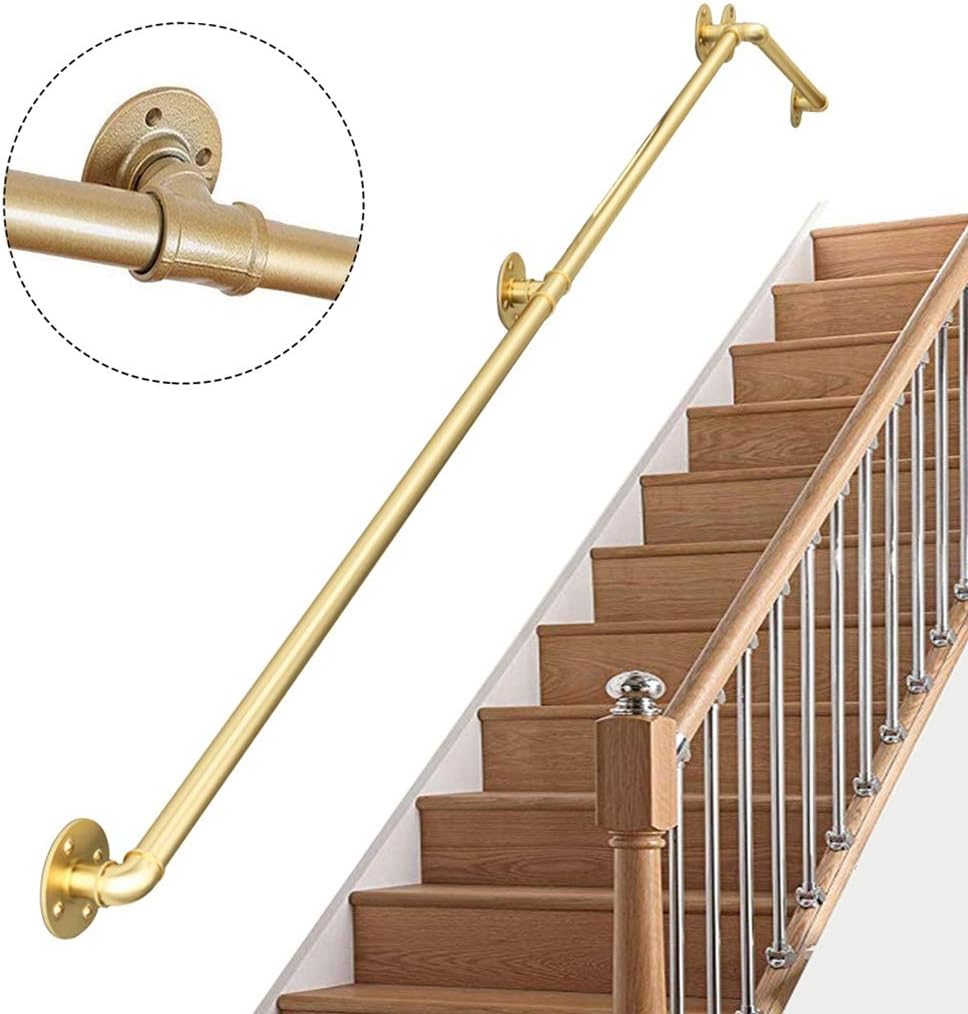
Modern Gold Stair Handrail, Metal Wrought Iron Grab Bar Elderly Children Outdoor Indoor Railing Non-Slip Banister Rail Safty Support 200kg (Size : 60cm)
FREE Shipping
Modern Gold Stair Handrail, Metal Wrought Iron Grab Bar Elderly Children Outdoor Indoor Railing Non-Slip Banister Rail Safty Support 200kg (Size : 60cm)
- Brand: Unbranded

Description
Much of what we know about the Celts has been learnt through oral tradition. It is thought that the name given to them by the Greeks – Keltoi – means ” hidden people ” due to the reluctance of the Celts to commit any of their vast wealth of knowledge to writing. A century later they pushed into Greece and Asia Minor and by 250 BC ” La Tene ” culture was at its height. The Celts resumed full scale trading over their old trade routes and by the second century BC new established fortified towns replaced many of the old hill forts, abandoned in the fifth century BC. Serving as centres of commerce and manufacture they were immensely lucrative; however Celtic trade grew increasingly dependent on Roman markets. It's common knowledge that things don't last forever. They break, become old and tired and eventually need fixing or replacing. There is no exception when we talk about stairs either.
The invention of the Bessemer process in the mid-19th century, saw a new era of mass- produced steel! It takes its name from Henry Bessemer, who took out a patent on the process in 1856 (it was also said to have been independently discovered by William Kelly, an American inventor in 1851, though there is little evidence to support the claim). The key principle of the process was the removal of impurities from the iron through oxidisation – blowing air through the molten iron. The process was refined over decades, thus improving the quality of the steel produced and with these improvements for the most part, mild steel replaced wrought iron. After the introduction of mild steel, which can be mass produced and therefore comparatively costs much less, wrought iron, and the craft skills associated with it, gradually disappeared in accordance with the general decline of craft standards in the twentieth century, until the last ironworks ceased production in 1974. Wood adhesives, wood filler and clear drying varnish are among the most popular products our customers use to keep their staircases looking and functioning as they should. The Celts probably descended from Stone Age peoples of Europe, who began to populate the continent about 10,000 BC.In 192 BC Rome established its supremacy and later conquered the area of Southern France we now know as Province. By the mid first century BC the Romans began their assault on Western Europe. With their loyalties still tribal rather than national the Celts were unable to mount a unified resistance. If you are looking for Stair Fixing Kits or Stair Accessories, please take the time to browse through the range of products UK Stair Parts has supplied you with below. Wrought iron has been used in building from the earliest days of civilisation, wrought iron door furniture being commonplace in Roman times. The structural use or iron gates from the middle ages, when bars of wrought iron would be used occasionally to tie masonry arches and domes. This use of wrought iron in tension guaranteed its use throughout the ascendancy of cast iron in the canal and railway ages, as cast iron is strong only in compression. Mild or low carbon steel is formed from iron containing a small percentage of carbon (approximately 0.05%-0.25%). It is widely used as it has similar properties to wrought iron – in that it is malleable and ductile and suitable for many applications but unlike wrought iron, it is more cost effective as it can be mass produced. We think it’s fair to say that the project was completed to the highest standards and serves as practical, inviting access to the first floor restaurant as well as a focal point for the ground floor bar. Helping to create an appetising setting for some truly delectable dishes!
We were approached by the client to create a unique cast spiral staircase that created an impactful point of focus for this high-end Chinese gastro pub situated in the heart of Soho.Basic Oxygen Steel (BOS) was developed in 1948 by Swiss engineer Robert Durrer and commercialised between 1952-53 by Austrian steel making company VOEST and ÖAMG. It is a refined version of the Bessemer converter, blowing oxygen through the molten iron instead of air. This largely replaced earlier methods by further lowering the cost of production and increasing the quality of the final product.
The modern replacement for wrought iron is mild steel and this is now the most common form of steel used today.Even though stairs and their key components generally have lengthy lifetimes, they still need fixing occasionally. This is when stair fixing kits and other accessories may come in handy. Steel was produced in bloomery furnaces for thousands of years, but it wasn’t produced on the industrial scale it is today until the 17 th century after more efficient production methods were discovered, including the production of blister and crucible steel. Most true wrought iron (puddled or charcoal) is now reserved for heritage and restoration projects with only one supplier of genuine wrought iron remaining worldwide.
- Fruugo ID: 258392218-563234582
- EAN: 764486781913
-
Sold by: Fruugo
